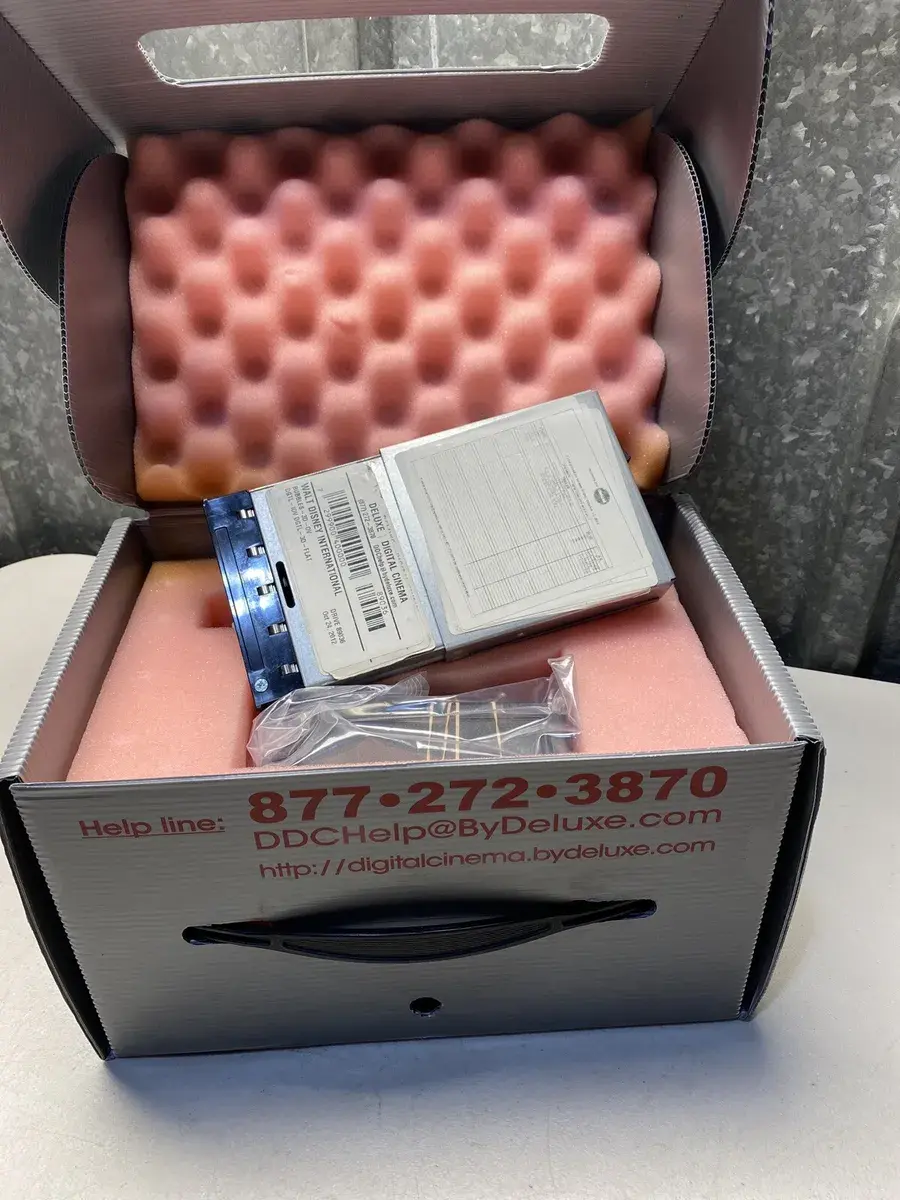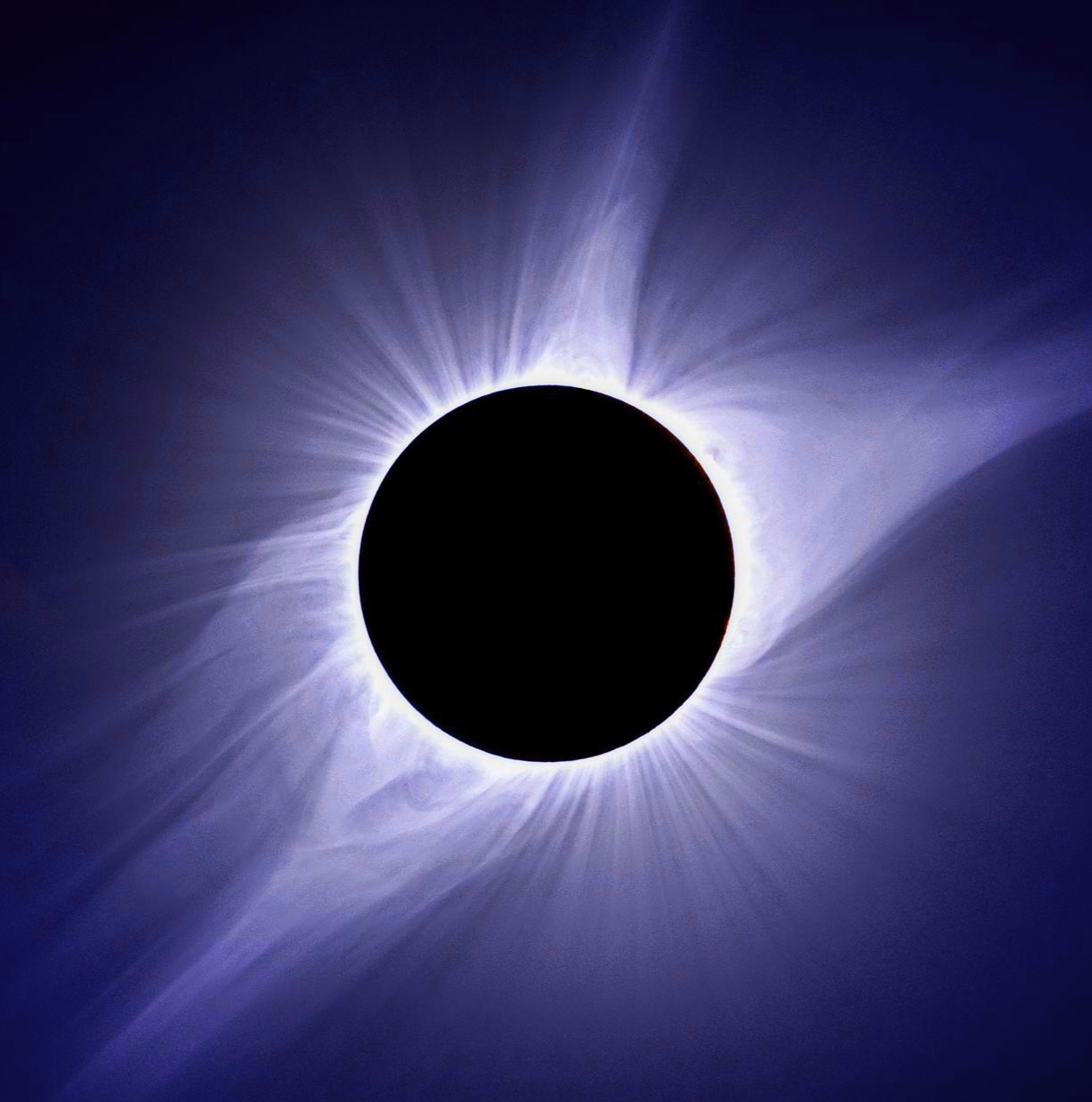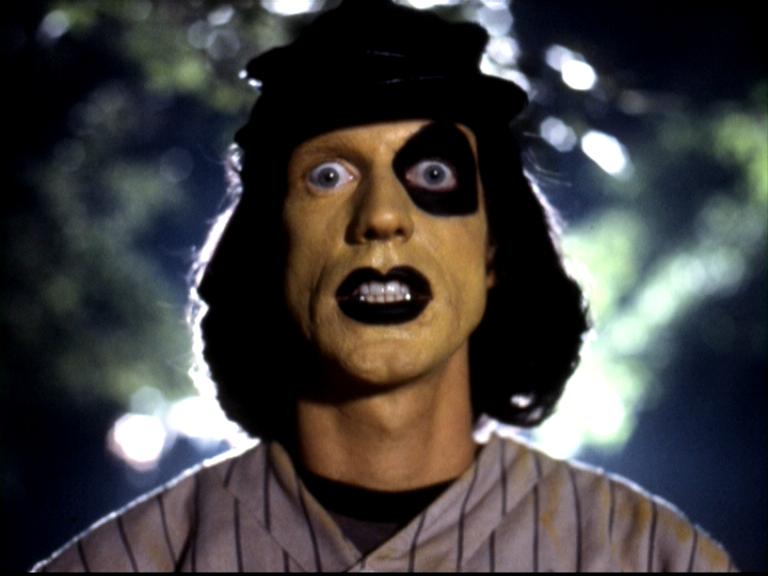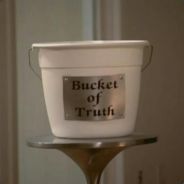600 lbs ~ 272 kg
11 miles ~ 18km
Good bot
Flashback to the old days (1 month ago)
Joey refugee here, this was only 24 h ago
Or approximately 2400 cheeseburgers for the Americans in the audience.
That’s almost a years worth!
272 kg ~ 43 stone
43 stone ~ 1.4 boulder
2 boulders = 1 pair boobies
According to this the average pair of boobies is 860 pounds, sounds about right.
alright
For you folks in the south, that’s equivalent to roughly 3 1/2 washing machines.
How many pebbles?
86 in the winter, 87 daylight savings time
deleted by creator
I understand 600lbs. Kgs mean nothing to me.
I understand 272 kg. Lbs mean nothing to me. :)
I didn’t realize imax was still film. I figured it went digital with everything else.
70mm film to be exact
I’ve not really been into films but recently I’ve started to pay more attention to directors and screen writers.
I really want to watch Oppenheimer as it interests me but I really really want to watch it on 70mm IMAX, I am lucky enough to love 6 miles away from one and I don’t know if it will be that good or if the marketing team has done a hell of a job.
I’ve been watching videos and reading up about IMAX and cinematography. Every showing is booked up for the first week that I checked. Even the 7am showings.
How good is 70mm imax
70mm is the equivalent of shooting 18k digitally
It’ll be really hard to know without seeing it in both formats… I will for sure be doing IMAX since I live close to one using this format.
15/70mm film to be exact. IMAX 15/70mm is different to standard 5/70mm you would get in a normal cinema.
There’s only a handful of IMAX theatres in the world that can play this format. Most of them are digital.
Yeah I’m stoked…two theaters play in 70mm format near me.
How do you even find that out?
Oh, neat :) Thanks.
Our local one did, but I guess not all. It’s a shame, you used to be able to watch the film being wound through windows
You can still do it through Linux, if you know the right commands…
Simply redirect standard output to the projector’s file descriptor.
I can honestly say I do not have any Windows in my house.
Yeah, that was pretty cool to see growing up.
Christopher Nolan is known for his love of film over digital.
https://www.hollywoodreporter.com/movies/movie-news/dark-knight-rises-chris-nolan-digital-335514/
there are both, the top end is still film though as far as I understand
Digital still can’t match 70mm IMAX. In fact, IMAX film is even higher resolution than regular 70mm as the film runs through horizontally rather than vertically so more space is used for the image.
But a lot of it has moved digital. IMAX has special laser projectors. They just are not as good. Also, there is a lot of LieMAX (smaller theaters given IMAX branding) that are pretty well all digital.
That will fit nicely in my 32gb micro sdxc the size of a fingernail.
True but you won’t lose the film roll that easy
You can copy the content more easily tho
Actually it won’t. A movie on a 4k blu ray is around 80gb without additional compression. And Oppenheimer is shot on 70mm which is more like 8k resolution. Still would fit on a micro SD of course
It’s way bigger than that. Usually cinemas receive movies in multiple terabyte hard drives. Thats because they are using JPEG2000 standard (it varies, but it is close to lossless) and a movie can take up anywhere from 500GB to 2TB (highly dependent on resolution, it can go above 2TB).
 https://en.wikipedia.org/wiki/JPEG_2000?wprov=sfla1
https://en.wikipedia.org/wiki/JPEG_2000?wprov=sfla1True. I was assuming h265 or something similar
Isn’t IMAX more like 16K?
And it would fit on a 32GB if you compress it enough :)
Reminds me of that time adult swim showed their new aqua team hunger force movie on tv before hitting the theater, but they minimized it to a tiny tiny corner of the screen while they played their normal broadcast
THE ARTIFACTS
WE MUST COLLECT THEM ALL
Some things to keep in mind about the theater experience.
- Only a handful of theaters do film IMAX anymore. A lot of IMAX locations are just 4k DCP (Digital Cinema Package)
- Most theaters in the world are digital projectors with a max resolution of 1998x1080 or 2048x858
Part of the reason these factors still exist is cost. A poorly maintained film projector with a lousy film print can ruin a movie going experience. Hollywood would sometimes release so very shitty prints. The digital projectors are much easier to maintain so the experience is often more ideal for the average movie goer.
Having said that, if a theater takes good care of their film projectors and they have a well made and well kept print, the experience can be amazing.
deleted by creator
Here is an alternative Piped link(s): https://piped.video/watch?v=xa1xJIgLzFk
Piped is a privacy-respecting open-source alternative frontend to YouTube.
I’m open-source, check me out at GitHub.
I’m going to see it in 70mm on the 28th and I’m sooo fucking excited! I got center seats near the back too, it’s gonna be epic. I wish there were more 70mm IMAX theaters so more people could experience it but I understand why there aren’t lol
Serious question, does it actually make that much of a difference? It’s it worth me driving 300 minutes to see?
I’m no old-school cinephile, but I’ve listened to enough of them to understand that if you’re really into the nitty gritty details and love soaking in every corner of a filmed image, there is no substitute for a large print screening. But YMMV.
deleted by creator
I’ve never actually seen anything in 70mm IMAX, so idk! But I love the vibe of analog film and the way it looks, so to experience Nolan in the way he intended it at essentially 16k resolution is likely going to be incredible. Five hours is quite a lot though, especially to then watch a three hour movie. Maybe if you made a weekend out of it and stayed at a hotel or camped somewhere? I’m lucky that the closest one to me is only a 45 minute drive
deleted by creator
Ooh that’ll probably be really good too!!
This is one of the only opportunities to see film that was not digitally modified.
Nolan’s films have 0 CGI or digital special effects?
Less than you’d think.
deleted by creator
I used to work a campus projection booth. We once got a print of The Dark Knight where an entire reel was green. No idea how that got past QC.
We made a point of watching every film before showing it to an audience to find and splice out any bad frames.
How do you find a film-IMAX theatre these days? Is this link accurate?
https://www.imax.com/news/oppenheimer-in-imax-70mm
Because if so, almost all of us are shit out of luck. I live in DC and I’d have to drive 2hr or so.
King of Prussia seats (center-ish and towards the back) are basically reserved out until August. Even if you want to drive out there you’ll have to wait. That’s how rare these projectors are lol.
My cousin is flying across half of Canada to stay at my place so we can watch it on 15/70.
What is 15/70? It’s not a date, not a time
15/70 is the IMAX film format, using horizontal frames, 70 mm tall and 15 perforations across, in comparison to regular 70mm (large format) film which has much smaller frames turned vertically that are ~5 perforations tall.
Thinking about it now, I probably should have guessed it given the context. Hindsight and all that. 😆
I’m going to make a 3 hour drive to my closest real IMAX. Haven’t had the pleasure to even see a mini IMAX film and am a fan of Nolan’s work so I’ll make the time.
Removed by mod
Worse audio, often worse visuals, can’t pause if I need to take a leak, and going to miss something important because some asshole in the front is on his phone.
This is why I own a high-end projector and a badass sound system. The stereo and speakers are for music first and video second. It’s not convenient as I don’t have (or want to accommodate blackout curtains), but it’s the best movie experience hands down for ^^ these reasons.
Question for anyone reading.
I want to build a mancave downstairs, but I wouldn’t watch enough things to warrant a TV. I was thinking of buying a projector. Projectors used to be expensive, very expensive. Good projectors still seem to be, however now there are a plethora of cheap projectors on sites like Ali, Temu, Amazon, etc. Is it worth buying a high quality projector? Will I notice the difference? Or can I get away with a $40 projector bought off one of those sites?
My plan would simply be to stream stuff off my phone. If a cheap projector is a bad idea, what is a good protector and how much would I need to pay? Also, anyone know what the best audio setup would be for this?
I bought an unknown brand on amazon for 250 maple syrup dollars and I’m pretty sure everything it says on the box is true. It’s 1080p native and 450 lumens. I use it to watch movies outside. I have to wait until sunset but otherwise I’m really happy with the picture quality. This is the one I got. I think if you got anything less it would probably be okay for your needs, but you might regret not getting something better the first time.
If you’re looking to keep costs super low I imagine you’re better off going for a second hand projector over a cheap new one.
deleted by creator
I’ve seen friends all buy types of these thinking they will get some good one and be impressed, 1080p, 3000lumens etc, all the specs say yes but the experience… no.
Go for an entry level from a brand that does projectors, eg I got Optoma but there’s Epson, even acer is fine. I got a 720p with 1080p source, or BluRay rips and it looks very legit.
Of course you can go higher, but sounds like you just wanted to start out… Optoma H183 I think is mine.
Never owned one, but I have a hard time believing that $40 pocket projectors are any good. LED projectors at that price range are going to be pretty dim, so you’ll absolutely need a dark room and to buy a proper projection screen if you want to see what’s going on. I think most of those are also 720p, maybe 1080p. The speakers on such a projector are going to be awful, tinny garbage.
For the price of $40 1080p projector, $50 screen, and $60 Bluetooth sound bar, you could get a 43" 4k tv that’s on sale somewhere.
Check out “The Hook Up” on YouTube. He has tested pretty much every projector on Amazon at this point.
Here’s his “under $100” video: https://youtu.be/2QOLL2TvpJ0
Here is an alternative Piped link(s): https://piped.video/2QOLL2TvpJ0
Piped is a privacy-respecting open-source alternative frontend to YouTube.
I’m open-source, check me out at GitHub.
Removed by mod
I think you are misunderstanding some assumptions.
This will be for a “Manc-Ave” (SO ref) that I will likely, get maybe, at most a movies worth of my own time… And I do intend to watch all the scary moves that my wife won’t allow down there… so that’s a plus, although thet get boring quick.
Same here. Got a 77” OLED and a 5.1.4 system, no way the local theater can beat that. Even in a darkened theater the black levels on a projector are terrible. Also, HDR peak brightness is ‘meh’ in theaters as well.
And even within imax, there’s differing qualities of the projector. It’s all quite complicated and seems to be intentionally obfuscated.
16k, it’s iMAX, which is about as good as it gets.
This obsession with the length and weight of the film is such a bizarre marketing strategy.
Yeah, we all know girth is what matters.
Big and heavy means quality, don’t you know?
The weight is sign of reliability. I always go for reliability.
Heavy is good, heavy is reliable. If it doesn’t work you can always hit them with it.
- Borris the bullet dodger
Never believe anyone who says size doesn’t matter.
deleted by creator
I think it’s more about the sheer amount of visual information that’s captured on film that size, but okay.
It’s something you don’t see every day. What are you asking for?
It’s interesting, calm down.
I think you meant to reply to the guy above me.
Ya this feels really astroturfy. Are they bragging that the movie is really long?
I feel like you don’t know what astroturfing is. This is just straight up promotional marketing for a movie coming out next week.
Movies are getting really long and I don’t know if I like it. I watched Across the Spider-verse recently which was I think 2.5 hours. To be fair it was a fantastic 2.5 hours, but every other movie in the theater was 2 hours plus and one was over 200 minutes long. Half of them were animated, which are usually on the short side and for good reason, because there’s never any real meat to the story (Spider-verse again being the exception). Sometimes you just want a relaxed 1 hour 20 minute story; not every film has to be this gigantic grand experience.
Do you know “The Ten Commandments” or “Ben Hur”? Or perhaps such monumental comedy productions as “The Hallelujah Trail”? It’s always been a thing
I’ll add The Godfather, Casino, Braveheart and Lord of The Rings to fill in some of the gap between then and now
Ikr l, watched spider verse a few days ago, awesome movie but I just was like, get this over with I’m falling asleep
If this movie was 120 minutes or less I’d see it. I cannot imagine there being 3 hours worth of stuff that I need to know about that guy… not happening!
I wouldn’t call it astroturfy but its so weird to me. Like nobody is walking around being like “The new PS5 weighs 7.5 pounds and has 139 miles of copper in its motherboard!” repeatedly for weeks. (I made up the amount of copper, but the weight is correct.)
Wow only 7.5 pounds, I have to get one now.
I’m sure I’m wrong, but it’s hard to imagine this being better quality than what we can do digitally these days.
You are in fact wrong lol. Actual film has a resolution equivalent of something like 18K.
Wasn’t normal 35mm film about the equivalent of somewhere between 4k and 8k depending on the film stock?
Plus, the projector optics will always limit the sharpness of the picture. No lense is ideal, and even ideal lenses would have fundamental limitations due to diffraction.
Something like that.
As far as lens optics, we’re really splitting hairs here. 70mm through a quality lens in an imax theater is going to look absolutely fantastic and stunning. Digital is just more convenient and at some point it will catch up and surpass film.
My point was more like that even IMAX film doesn’t quite get to 18k equivalent, more like 12 to 16k. Honestly, anything above 4k (for normal widescreen content) even on big screens is barely noticeable if noticeable at all. THX recommends that the screen should cover 40° of your FOV; IMAX is what, 70°, so 8k for it is already good enough. Extra resolution is not useful if human eye can’t tell the difference; it just gets to the meaningless bragging rights territory like 192 kHz audio and DAC-s with 140 dB+ S/N ratio. Contrast, black levels, shadow details, color accuracy are IMO more important than raw resolution at which modern 8k cameras are good enough and 16k digital cameras will be more than plenty.
The extra resolution isn’t completely useless from an editing standpoint.
If you’re working with 16k footage and a 4K deliverable and the shot isn’t quite right you can crop up to 75% of the image with no loss in quality.
This kind of thing would be mostly useful for documentaries, especially nature, or sports where you can’t control the action.
Yup that’s why people can go back and rescan old film movies to make them into 4k now that we have better cameras, but you can’t do that with movies that were recorded with digital
Yeah, we’ll have this brief digital gap from the era when film was going out of fashion and 4k and higher resolution digital cameras weren’t a thing yet. But now that even average youtubers are shooting 4k with cheap(ish) DSRL-s, we generally don’t have to worry about the content having “not good enough quality for the future”.
The bigger problem IMO is the ephemeral and profit-driven nature of modern content distribution. Once the studio decides a film/series is not making enough money and pulls it from streaming, it’s gone. IIRC, DRM of DCP is also remotely managed so even if a cinema physically has the drive with the movie, they can’t play it when the studio pulls the plug–this was not the case with film.
Yeah all that is a huge problem, I remember Microsoft pulled the game Scott pilgrim from the Xbox 360 so if you didn’t buy it beforehand you couldn’t get it anymore until they did some legal stuff to get the game back in the store.
I still think film today is a great tool for getting high resolution photography at a cheap entry cost, a full sized digital sensor camera can be pretty pricey where as a 35mm film camera can be had pretty easy, then once you go to medium format it’s gets more expensive and then I’m not even sure there is large format digital cameras
Speaking of projectors, don’t they max at something like 100 nits?
The JVC DLA-NX5 I have the pleasure to have set up for demos at work is 1800 lm, or 525 nits. Plenty bright, HDR looks amazing on it.
I don’t think there’s any reason we couldn’t make a store 18k video.
And we could make screen at much higher resolutions that that at imax size, or even quite a bit smaller, though I suspect it would be absurdly expensive.
It is technically possible but you’re right it would be absurdly expensive.
Storing it isn’t the problem, you’ll still need to be able to record and project at that resolution.
As I said I’m sure we could make screens that could do that. They would be absurdly expensive and heavy and stupid, but it could be done. Not worth it though.
And it looks like at least 16k cameras have been made.
The screens aren’t the problem. It’s often the hardware driving it. The current top generation of gaming gpus struggles at 8k. There’s very little chance of being able to render and play 16/18k
Rendering video and rendering games are pretty different. Video is generally easier especially once it’s mixed down.
Not enough to justify using such a proprietary technology
proprietary technology
Not like the off the shelf stuff you can get to store and show 18K.
deleted by creator
Resolution and color reproduction is still unmatched. Plus there are a lot of things happening in the analog domain that our eyes notice as beautiful.
Same thing is true for analog vs digital music production btw
I can’t speak for video, but for audio production that isn’t true. Audio signals can be perfectly reproduced, up to some frequency determined by the sample rate and up to some noise floor determined by the bit depth, digitally. Set that frequency well beyond that of human hearings and set that noise floor beyond what tape can do or what other factors determine, and you get perfect reproduction.
See here. https://youtu.be/UqiBJbREUgU
deleted by creator
I don’t know if perfect reproduction necessarily sounds better. It’s probably subjective, but projects I’ve worked on that were tracked with tape have a quality that you can’t get from digital. I’m not talking about tape hiss or anything like that. There’s a roundness to the sound.
True! Analog can distort the audio in a way some people like.
But, it is a distortion. It’s not there in the original audio. Sometimes, that is desired though.
Valves and vinyl still sound better
Some people do like the distortion that analog audio provides, that’s true. But it is because of something that wasn’t in the original audio. It’s an artistic choice.
Yeah, but they’re likely digitally editing it all now, so it loses that in the middle of the process. Can’t really see why it would make sense to print a digital file back onto film
Despite being what a lot of analog fetishists focus on, a purely analog editing chain is not necessarily what causes the effects that they actually like about analog media. Most of it comes from the playback media itself. In the case of vinyl records, there’s mastering techniques that have to be used to make sure the needle stays in the groove that some people feel sound better. There’s minute harmonic distortions that people prefer over the perfectly clear and clean sound of digital. In the case of film payback, you have actual image frames being flashed on the screen. You have shutter dwell where no image is shown at all while the next frame is being advanced. You’d never consciously notice the flicker, but it affects the way you perceive the image and the motion on the screen. Film can have very high contrast and there may also be minor differences in color profile due to being displayed by pigments rather than being created digitally. Most digital media these days is technically far superior to it’s analog counterpart. It just happens that it’s the limitations and artifacts of the analog media that some people find pleasing.
Yeah, I like vinyl too. But digital to analog conversion is always imperfect. I don’t see that being too fitting for an IMAX cinema, where the aim is just biggest and best, no niche. Aesthetic imperfections are more fitting for arthouse and such I think.
However, I read into it some more now and it’s quite interesting. In the case of Oppenheimer, they actually do manage to avoid the digital conversion for much of the film!
For movies shot on film, all of the film negatives are scanned to digital files so that they can be edited using AVID, and the process continues as before. The finished movie can then be “printed” back on to physical film using a laser scanner, which is how most film prints are made these days. However, some filmmakers like Christopher Nolan refuse to use this method, because it doesn’t allow you to take full advantage of the resolution of IMAX film. So in Nolan’s case, once the movie is finished, an Edit Decision List (EDL) is created, which contains a text list of all the edit points in the film, and which physical pieces of film negative those correspond to. Then, a person called a Negative Cutter actually physically cuts together and assembles the film negative to create the movie in the analog realm. It’s a very specialized profession - there are only one or two people in Hollywood that still do it!
That’s pretty cool. Of course Christopher Nolan would insist on editing on film. I bet Tarantino and a few others would as well. In the case of laser printing vs optical printing, he’s probably right, especially at IMAX scale. And you’re absolutely right that he’s choosing it because it’s the highest possible fidelity, whereas someone like Tarantino chooses film for sentimental, kitsch, and artistic reasons. Apparently digital IMAX is still only about 4k at best. In the audio world though, analog DACs really are perfect reproduction many times beyond what is perceptible in sound. Compared to cutting to vinyl from tape, or even transferring from tape to tape, digital is orders of magnitude higher fidelity to the source signal. There’s lots of reasons to love analog audio, but higher measurable fidelity is not among them.
Idk. One benefit is that if preserved, in the future it might allow digital captures of higher resolution. I say might because maybe we already reached the max level of detail you could extract from these type of analog films I do not know.
Depends on the film itself being used. You can get a pretty insane level of detail on the professional-grade stuff. It’s how we’re able to do 4K remasters of stuff from decades ago. Digital still has a fair bit to go before it can fully outshine analogue film.
We have such a thing as an 8K camera. It’s kinda hard to beat an 8K camera. Especially given film has a very low frame rate, so you’re trading one kind of quality for another.
8K is basically more pixels than your ever going to need unless you like staring at a tiny portion of the screen. 24 FPS (films normal FPS fyi) on the other hand is very noticeably different from 60 FPS, nevermind the 120+ FPS some cameras can do.
The reason we have these cameras is partly so we can crop and still get a usable 4K or 6K image.
As for compression we have true lossless and visually lossless formats that are used on professional video cameras. This includes Red Raw.
Did I mention that this kit is cheap enough that Linus Tech Tips - a YouTube channel - can afford to have at least one.
IMAX 1570 film is equivalent to somewhere between 12K and 18K resolution, though as you say that’s only going to matter on a really big display or if you’re creating content for future VR headsets. As for frame rate, more than 24 FPS doesn’t really seem popular in cinema - I remember that Hobbit film getting quite a negative reaction when it tried 48 FPS, and then there’s the Soap Opera Effect. The colour characteristics of different kinds of film also appeal to some artistic filmmakers.
None of those points really justify the significantly more expensive and complicated workflow that comes with analogue film, mind. I do wish digital hadn’t taken over so soon because a whole bunch of media is now stuck with 480p digital as the best it’s realistically ever going to look barring AI upscaling, but I can’t say I really blame the producers for making that decision because digital is far less of a pain in the ass.
Nope not even display size can save this, as you need to sit some distance to see the whole thing, unless you only want to look at a portion. The human eye has a finite effective resolution.
VR it could maybe make a difference, even then 8K is good compared to most modern VR devices.
VR possibly needs to get as high as 16K to be truly perfect for the human eye, so it could be useful there. But 16K headsets are a long way off, and refresh rate also needs to improve since the human eye can perceive up to 2,000 frames per second, so I feel like refresh rate will be the priority over pixel density by the time we get even 8K headsets.
While some of what you said is questionable, I do wish more movies were shot in 60+ FPS. Some people clams to prefer 24 FPS, but I honestly think that’s just because we’re so used to it.
What have I said is actually questionable? 8K is already beyond the limit of what a human can see at any practical viewing distance. Super high end film might beat it in equivalent resolution, but at that point it’s purely academic because you’re eyes can’t see that much detail.
Unless you want to blow up a small portion of the image to poster size… then I am sure IMAX film is better. Just not sure why you would want that.
Meanwhile in framerate you can see a fairly large difference between the two technologies.
deleted by creator
deleted by creator
To store digitally you would need a compression algorithm. Pretty much all video compression algorithms are lossy, which means you automatically lose detail.
Storing an uncompressed video isn’t feasible as each frame could be hundreds of megabytes (or more) in size. This is due to resolution + color info + audio channels.
Many lossless video compression algorithms exist.
https://en.m.wikipedia.org/wiki/List_of_codecs#Lossless_video_compression
Even uncompressed, they would be large, but not unfeasible. Even assuming about 12 MB per frame (reasonable for lossless 4k) that gives us about 1TB per hour. Using lossless video compression would push that smaller. That’s very large for consumers, but not for a film studio. I’m certain a few terrabytes Iof storage are way cheaper than that much film.
4K isn’t nearly enough resolution to compare to IMAX. Plus, I assume your calculations are for 8bit color. To hang with film. Would need to be 12bit
The color was in fact 16 bit.
If you want 18k, multiple 1TB by (18/4)^2 ish
So more like 20TBs. And again, that’s lossleslly compressing the individual images, but not the video. The video is still uncompressed. Lossless video compression would significantly reduce that.
It is a huge file, but it’s just as tractable as that film.
An uncompressed 4K frame with 16-bit color is about 50 MB. An uncompressed 18K frame with 16-bit color is just over 1 GB.
I don’t disagree with you that lossless 18K video storage is trivially easy—digital storage is shockingly cheap these days—but I’m curious where you’re getting those numbers from. Compressing an hour of 18K video from 87 TB to 20 TB seems like a remarkable feat.
I was using lossless compressed image sizes becuase they were relatively easy to find. So those 4K 16-bit frames were more like 12 MB instead of 50. That’s where the compression comes from. Lossless image compression details were much easier to find than losses video compression details, and I could test them myself easily. The 12 MB will depend on the original image, as some compress much more readily than others, but it’s reasonable.
I assumed even an IMAX film would be digital now.
Imax film is some of the highest resolution formats we have it’s like 16k resolution, and using that for a projector gets ya some really good quality.
Quality so good they can come back to it 20 years from now when blu-ray is an outdated format to make a higher-quality home release, like what’s been done with VHS to DVD or DVD to BD
Kinda already is
The vast majority is. This is one of only a dozenish theaters showing a true film image full 70mm print. Every other version is either a smaller mm print or digital.
If I pay to see a movie in an IMAX theater, this is the film being loaded? Is this normal for IMAX?
No. This is called “15/70 Imax”. There are very very few theaters that have this. The “Imax” you’ll find at the local mall is totally different.
I think the theater near Lincoln Center in NYC has this format. I saw 300 there, and something else but I can’t remember what. It looks absolutely insane.
Insane good or insane bad?
Ha, sorry. I thought it was awesome.
Was 300 actually filmed in IMAX?
Check out this list. The imax 70mm ones would be reels like this one.
https://www.in70mm.com/news/2023/oppenheimer_cinema/index.htm
Me: Watching it on my phone Nolan: 🫨
Nooooooo! We don’t provide mixes for substandard audio setups!
All of this could fit on a micro SD card.
Probably not. 3 hours of uncompressed 1080p video is around 2tb. The film is closer to 16k which is 64 times more pixels than 1080p. This ain’t your web rip off pirate bay.
Surely even a lossless compression is incredibly smaller. (But you can’t truly losslessly convert from film to digital, only commenting on uncompressed 1080p.)
However, let’s not forget the whole thing was created digitally then “printed” to film, so there was never a “film original”.
Well, kind of. Nolan does shoot on film, including all of Oppenheimer, but they almost definitely brought it into some digital format for editing before pressing it back onto film in this case.
He uses the camera negative as much as possible and avoids CGI as much as possible so a lot of film hasn’t been digitised and reprinted it’s from the actual source.
Fair point, I hadn’t looked up the specific movie / director
Christopher Nolan is famously one of the few big Hollywood directors who still shoots much of his footage on actual film, specifically in IMAX.
Sure but that’s not the point, film is wholly uncompressed. When theaters get 4k digital releases they get mailed a hard drive with the movie on it. “This” wouldn’t fit on any card.
It’s hard to say, but film grain is noisy and noise does not compress well. In my experiments with lossless video compression without film grain you’d get a ~3:1 compression ratio. With film I’d guess closer to 2:1.
So 16k (15360 x 11520) x 12 bit per channel (36) x 24 fps x 3 hours (10800) is 206 TiB. Even with very generous estimates of compression ratios you’re not fitting this on anything less than a 2U server filled with storage.
Still works if you replace the SD card with an SSD, only slightly larger in comparison to the reel. Of course this ignores any losses when you digitise the film.
Not quite, as the other dude said. IMAX is on a whole other level, which is probably why there are so few of them around.
Needs a 600 lbs SD card.
Yeah, nah. The equivalent digital copy would be terabytes, and the read speed of a micro SD likely wouldn’t be fast enough.
Going to see Oppenheimer in imax soon and this post got me researching about imax and fake imax and now im a little disappointed that the imwx theater im going to is just digital imax (fake imax). Oh well :/
I was also disappointed when I checked how many true IMAX theaters the movie is playing in in the US. We have a real IMAX theater in our natural history museum in my city, but Oppenheimer won’t be playing there :(
There’s one full imax in CT being demolished for a bridge. It is a very necessary bridge that’s 125 years old and supports the commuter rail into NYC. I doubt the IMAX will be replaced.
Damn that’s the one that’s halfway between my brother and I. I was hoping to make it a regular spot.
Wow that sucks…
This is insane. I want to go watch this in IMAX so badly, but there are no IMAX theaters anywhere near me. Maybe one day I’ll get a chance. Do they ever reshow older IMAX movies? Like, I would kill to go back and see Interstellar or Dark Knight.
Why do people get so hyped for IMAX? There’s gotta be something more to it than just an even bigger screen, right?
It basically a badge for a more premium film experience. It’s a bigger screen, on an aspect ratio that fills the vision, with seating that puts you in the right place, rather than trying to see over the person in front.
Huh, yeah I’ll just stay on my couch.
That’s as premium as it gets: deep OLED color, pulled pork out of the crock pot, blankets to curl up with, the works.
The confusing part is there are different types of IMAX’s. My nearest cinema has IMAX screens but they are just slightly larger theatre screens for the most part. But downtown there’s a 70mm film IMAX and if a film was made for it, I’ll go out of my way to see it there - Interstellar and Dunkirk come to mind. Seats are closer to the screen and the aspect ratio is more square, and film just has a certain charm to it.
Many years ago, I ended up with a membership to a local museum that had a OMNIMAX theater, which is IMAX, but with a dome and a fisheye lens is used ot shoot the film. The projector is, essentially, in the middle of the room and shoots “up” at the screen / dome at about a 45 degree angle. The net result is the film is pretty much half-a-sphere in front of you. Your entire field of vision is filled by the media.
They almost always showed educational films or documentaries specifically filmed for the format. I specifically recall some stupid one about snowboarding of all things, which was really just an excuse for the filmmakers to go snowboarding and ride helicopters with an expensive movie camera in the mountains. It’s very, very cool.
Even if there aren’t any major studio movies made for these theaters, if you ever get a chance to see something on one of the few left in operation, take it. Totally worth it.
It’s still the highest spatial resolution format. The recent laser systems do win for dynamic range, but for sheer detail you’d need roughly the equivalent of 16K while most theater digital projectors are 2K to 4K.
An estimate for “enough” detail when doing foveated rendering is 12K, so 16K uniform is pretty decent.
It’s good at home since it can fit the entire 16/9 display.
I was wondering the same, and it sounds like it all depends on theatre. Someone also said that if you had quite a bit of money (I don’t remember how much, but it was in thousands), you could pay for them to get the IMAX film spool (which are apperantly heavily controlled, for piracy I guess) and play it again just for you.
deleted by creator
yeah, i dont know anything about this topic other than what that guy said, so ¯_(ツ)_/¯
deleted by creator
I mean, I’m driving 3 hours and my brother is driving 4 hours (each way) so we can see Oppenheimer in 70 mm / 15 perf together next weekend.
I dunno man, I’ve been to IMAX to see Dune in and it was so fucking loud i had to leave after 15 minutes, even with 1100 3M ear plugs which are like -30db.
That’s a theatre issue, not an IMAX one.
hmm I thought the point of IMAX is you get the same experience no matter the theater
That’s a him issue. It’s supposed to be fucking loud. When those people go to the lobby and tell them to turn it down, that’s when I walk out and buy the midnight ticket.
I read quite a few comments, admittedly not all. But I haven’t seen this asked.
How is this 600 pounder handled? Forklift? Hoist? WTH?
Smaller reels that are spliced together as they’re fed on the feed platter you see. My dad was a a projectionist, he’d make these up when a film arrived then break it down to ship it. I’d go on and help him as a kid.
Wow. Very good, thank you.
Can confirm! I worked projection in high school and college. IIRC the longest one I built was one of the Lord of the Rings movies.
Team of bodybuilders
Gold’s IMAX and Gym
So, in my hometown, we actually have one IMAX theater, and it is within 3 blocks of a Gold’s Gym. This is now canon as far as I’m concerned.
Yo! We need 3 guys to deadlift the double feature tonight. Who’s available?
There are productions that still use film?
EDIT: Missed the iMAX part.
Many. And this isn’t even the footage, this is the print for the cinema.
A surprising number of films are still shot on film and then transfered to a digital intermediate for editing and later distribution. Not only the few film imax ones. I wonder if anyone is still doing their editing on film, I highly doubt it.
deleted by creator
I never thought of that as a possibility. Best of both worlds then I guess.
Or worst. I don’t know enough about editing to say.











































